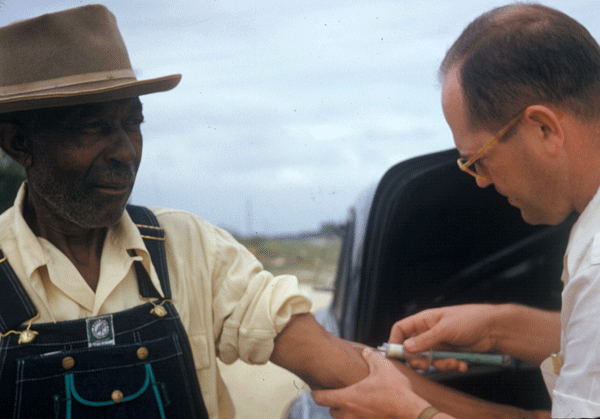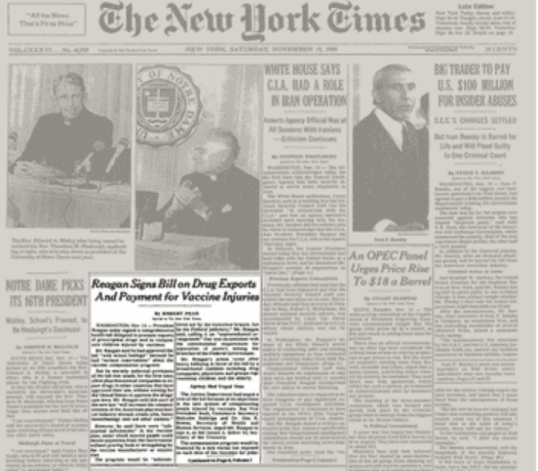Photo: National Archive
From 1932-1972, the U.S. Public Health Service conducted a study of the effects of untreated syphilis in Black men in Macon County, Alabama where Tuskegee is the county seat. Early in the study, 399 men with late latent syphilis, and 201 men without syphilis were initially enrolled. As the study evolved, additional participants were added, so the number of men in the study varies according to the source. The poor Black men in the study were told they were receiving free health care from the United States government and were not given full informed consent. The study was limited to black men 25 years of age or older, however as a result of lack of treatment, some women contracted syphilis from men who participated in the study’s syphilitic group and some women gave birth to babies with congenital syphilis. No women were included in the study.
Local African American and white physicians were recruited not to treat the men. Autopsy and physician assessments were done at local hospitals. A number of Tuskegee Institute (now known as Tuskegee University) faculty and staff were involved in the study. The study became unethical in the 1940s when penicillin became the recommended drug for treatment of syphilis and researchers did not offer it to the subjects. The last study participant, Mr. Ernest L. Hendon, died at age 97 on January 16, 2004.




